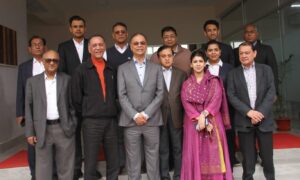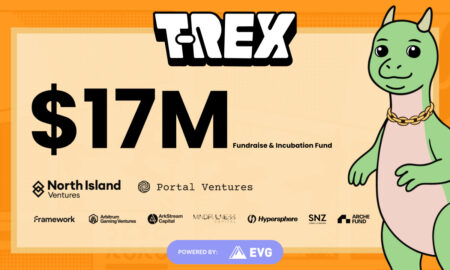In the course of this article, you’ll discover everything you need to know about the Global Sustainable Electricity Partnership (GSEP) Scholarships, a fantastic opportunity for master’s students passionate about sustainable energy. We’ll break down what these scholarships are, who can apply, what they offer, and how to navigate the application process, making it super easy to understand.
Hey there! So, you’re looking into ways to further your studies in sustainable energy? That’s awesome! You might have stumbled upon something called the Global Sustainable Electricity Partnership (GSEP) Scholarships. It sounds a bit formal, right? But trust me, it’s a really cool initiative that could be a game-changer for your academic journey and career aspirations. Think of it as a helping hand to support bright minds like yours who want to make a real difference in the world of electricity and sustainability. Let’s dive into the details, shall we?
Understanding the GSEP Scholarships
Alright, so what exactly are these GSEP Scholarships all about? Basically, the Global Sustainable Electricity Partnership (GSEP) is a non-profit organization made up of major electricity companies from all over the globe. These companies are committed to sustainable development, and one of the ways they show this commitment is by offering scholarships to talented students pursuing master’s-level studies in fields related to sustainable electricity.
Think of it as a collective effort by some of the big players in the energy sector to invest in the next generation of experts who will drive the transition towards a more sustainable energy future. They believe that by supporting your education, they’re contributing to a world where electricity is cleaner, more accessible, and environmentally responsible. Pretty neat, huh?
Who is Behind GSEP?
You might be curious about who these “major electricity companies” actually are. Well, GSEP’s members include leading power utilities from various countries. These are established companies with a long history in the electricity sector, and they’ve come together under the GSEP umbrella to promote sustainability in a big way. Their involvement adds a certain level of prestige and credibility to the scholarships they offer. It’s not just any scholarship; it’s backed by industry leaders who are actively shaping the future of energy.
The Core Mission of the Scholarship Program
The main goal of the GSEP Scholarship program is to support outstanding students who are dedicated to advancing sustainable electricity. This includes areas like renewable energy technologies, smart grids, energy efficiency, and policy and economics related to sustainable energy development. By providing financial assistance, GSEP aims to empower these students to become future leaders and innovators in the field. They’re essentially looking for individuals who have the potential to make significant contributions to a more sustainable energy system globally.
Who Can Apply for a GSEP Scholarship?
Now for the exciting part – could you be eligible for one of these scholarships? Generally, the GSEP Scholarships are targeted towards students who are:
- Citizens of Developing Countries: This is a key criterion. The scholarships are specifically designed to support individuals from nations that are actively working towards sustainable development. The list of eligible countries can vary slightly from year to year, so it’s crucial to check the latest guidelines on the GSEP website.
- Pursuing a Master’s Degree: The scholarships are for students who have already completed their undergraduate studies and are now looking to pursue a Master’s degree program. This focus on postgraduate studies indicates that GSEP is looking for individuals who are serious about specializing in sustainable energy.
- Enrolled in Specific Fields of Study: Your Master’s program needs to be relevant to sustainable electricity. This typically includes fields like:
- Renewable Energy (solar, wind, hydro, geothermal, etc.)
- Electrical Engineering (with a focus on power systems and sustainable technologies)
- Energy Policy and Economics
- Environmental Science (with an energy focus)
- Sustainable Development (with an energy specialization)
- Smart Grids and Energy Storage
- Climate Change Mitigation (related to the energy sector)
- Demonstrating Academic Excellence: You’ll need to have a strong academic record to be considered a competitive candidate. This usually means having good grades in your previous studies.
- Having a Clear Commitment to Sustainable Development: Your application will likely need to demonstrate your passion for and commitment to contributing to a more sustainable energy future. This could be through your previous studies, work experience, or personal interests.
Important Eligibility Considerations
Keep in mind that there might be other specific eligibility criteria depending on the year and the specific call for applications. For instance, some scholarships might have age limits or require you to be enrolled (or accepted for enrollment) in a specific university or program. Always, always check the official GSEP website for the most up-to-date and accurate eligibility requirements. Don’t rely solely on general information – the details matter!
What Does the GSEP Scholarship Offer?
Okay, so you’re eligible – what’s in it for you? The GSEP Scholarship is quite generous and aims to significantly ease the financial burden of pursuing your Master’s degree. Here’s what you can typically expect:
- Financial Support: This is the big one! The scholarship usually covers tuition fees, which can be a major expense for international students. The exact amount can vary, but it’s often substantial enough to cover a significant portion, if not all, of your tuition.
- Living Expenses: On top of tuition, the scholarship often provides a stipend to help with your living costs, such as accommodation, food, and other daily expenses. This support allows you to focus on your studies without constantly worrying about making ends meet.
- Travel Costs: In some cases, the scholarship might also cover the cost of your travel to and from your study destination. This can be a huge help, especially for students traveling internationally.
- Other Potential Benefits: Depending on the year and the specific scholarship, there might be additional benefits, such as opportunities to attend conferences, workshops, or even internships with GSEP member companies. These opportunities can provide invaluable networking and learning experiences.
The Real Value Beyond the Money
While the financial support is undoubtedly a major draw, the GSEP Scholarship offers much more than just money. It provides:
- Prestige and Recognition: Being a GSEP Scholar is a significant achievement that can enhance your academic and professional profile. It signals that you are a talented and promising individual in the field of sustainable energy.
- Networking Opportunities: You’ll become part of a network of other GSEP scholars and potentially connect with professionals from leading energy companies. These connections can be invaluable for your future career.
- Access to Knowledge and Expertise: Being associated with GSEP can open doors to valuable resources, insights, and expertise in the sustainable energy sector.
How to Apply for a GSEP Scholarship: A Step-by-Step Guide
Alright, feeling excited and ready to apply? Here’s a general overview of the application process. Keep in mind that the exact steps and deadlines can vary each year, so always refer to the official GSEP website for the most accurate information.
Step 1: Check the Eligibility Criteria (Again!)
Seriously, this is the most crucial first step. Make sure you meet all the eligibility requirements for the specific year you’re applying. Don’t waste your time and effort on an application if you don’t qualify.
Step 2: Find an Eligible Master’s Program
You’ll need to identify a Master’s program that aligns with the GSEP’s focus on sustainable electricity and is offered at a recognized university. Some scholarships might even have a list of preferred or partner universities, so be sure to check for that.
Step 3: Prepare Your Documents
The application will typically require several documents, which might include:
- Application Form: This is the basic form where you’ll provide your personal details, academic background, and the program you’re applying for.
- Academic Transcripts: You’ll need to provide official transcripts from all your previous university studies.
- Degree Certificates: Copies of your degree certificates will also be required.
- Curriculum Vitae (CV) or Resume: This document should highlight your academic achievements, work experience (if any), and any relevant skills or activities.
- Statement of Purpose or Motivation Letter: This is a crucial part of your application. It’s your opportunity to explain why you’re interested in sustainable energy, why you’ve chosen this particular Master’s program, and how you plan to contribute to the field in the future. Make it compelling and genuine!
- Letters of Recommendation: You’ll usually need one or two letters of recommendation from professors or other academic professionals who know you well and can speak to your academic abilities and potential. Give your referees plenty of time to write these letters.
- Proof of Citizenship: You’ll need to provide documentation to prove that you are a citizen of an eligible developing country.
- English Language Proficiency Test Scores (if applicable): If English is not your first language, you might need to submit scores from a recognized English language test like TOEFL or IELTS.
- Other Supporting Documents: There might be other documents required depending on the specific scholarship or program, so pay close attention to the application guidelines.
Step 4: Complete and Submit Your Application
Once you’ve gathered all your documents, carefully fill out the online application form (if it’s an online application). Make sure all the information you provide is accurate and complete. Proofread everything before you submit! Pay close attention to the deadlines, as late applications are usually not accepted.
Step 5: Await the Results
After you submit your application, all you can do is wait. The selection process can take some time, as the GSEP Scholarship committee carefully reviews all applications. Be patient and keep an eye on your email and the GSEP website for updates.
Tips for a Strong GSEP Scholarship Application
Want to make your application stand out? Here are a few tips:
- Start Early: Don’t wait until the last minute to begin your application. Give yourself plenty of time to gather your documents, write your statement of purpose, and request letters of recommendation.
- Read the Guidelines Carefully: Understand all the requirements and instructions thoroughly. Pay attention to the specific criteria and any formatting guidelines.
- Craft a Compelling Statement of Purpose: This is your chance to shine. Clearly articulate your passion for sustainable energy, your academic and career goals, and how the GSEP Scholarship will help you achieve them. Be specific and provide examples.
- Choose Your Referees Wisely: Select professors or supervisors who know you well and can provide strong, positive recommendations based on your academic abilities and potential. Give them enough information about the scholarship and your goals so they can write a relevant letter.
- Proofread Everything Meticulously: Errors in your application can create a negative impression. Proofread all your documents carefully for grammar, spelling, and punctuation mistakes.
- Highlight Your Relevant Experience: If you have any research experience, internships, or volunteer work related to sustainable energy, be sure to highlight these in your CV and statement of purpose.
- Tailor Your Application: If there are specific areas of sustainable electricity that GSEP emphasizes, try to align your statement of purpose and your chosen program with those areas.
- Be Authentic: Let your genuine passion for sustainable energy come through in your application. The reviewers are looking for individuals who are truly committed to making a difference.
Understanding the Selection Process
While the exact details of the selection process might not be fully transparent, here’s a general idea of what usually happens:
- Initial Screening: The GSEP Scholarship committee will first review all applications to ensure they meet the basic eligibility criteria. Applications that don’t meet these requirements will likely be disqualified.
- Academic Merit Assessment: The committee will then assess the academic merit of the eligible candidates based on their transcripts, degree certificates, and other academic achievements.
- Statement of Purpose and Letters of Recommendation Review: The statement of purpose and letters of recommendation play a crucial role in the evaluation process. The committee will be looking for candidates who demonstrate a strong understanding of sustainable energy issues, a clear vision for their future contributions, and strong support from their referees.
- Potential Interviews (in some cases): Depending on the volume of applications and the specific scholarship, some shortlisted candidates might be invited for an interview (which could be virtual). This is an opportunity for the committee to learn more about the candidates and their motivations.
- Final Selection: Based on the overall assessment, the GSEP Scholarship committee will make the final selection of the scholarship recipients.
The selection process is competitive, so it’s important to put your best foot forward with a well-prepared and compelling application.
The Impact of GSEP Scholarships: Real Stories
It’s always inspiring to hear about the real impact of such scholarships. While I might not have specific stories of past GSEP scholars at my fingertips right now, you can often find testimonials or news on the GSEP website or through university alumni networks. Generally, these scholarships have enabled talented students from developing countries to:
- Access World-Class Education: They’ve been able to study at leading universities around the world, gaining knowledge and skills that might not have been accessible in their home countries.
- Conduct Cutting-Edge Research: The financial support has allowed scholars to focus on their research and contribute to advancements in sustainable energy technologies and policies.
- Become Leaders in Their Fields: Many GSEP alumni have gone on to hold important positions in government, industry, academia, and non-profit organizations, driving the adoption of sustainable energy practices.
- Make a Tangible Difference: Ultimately, the GSEP Scholarships contribute to building a global community of experts who are working towards a more sustainable and equitable energy future.
Imagine someone from a rural community in a developing nation, passionate about bringing clean energy to their region. Without the GSEP Scholarship, pursuing a Master’s degree in renewable energy might be an impossible dream. But with the scholarship, they can gain the expertise needed to implement solar power projects, improve energy access, and transform their community. These are the kinds of impactful stories that often emerge from such initiatives.
Frequently Asked Questions (FAQ) About GSEP Scholarships
Let’s tackle some common questions you might have:
Q: How often are the GSEP Scholarships offered? A: Typically, the GSEP Scholarships are offered annually. However, it’s always best to check the official GSEP website for the most up-to-date information on application cycles and deadlines.
Q: Can I apply if I haven’t been accepted into a Master’s program yet? A: The requirements can vary. Some scholarships might require you to have already received an offer of admission from a relevant Master’s program, while others might allow you to apply concurrently. Check the specific guidelines for the year you’re applying.
Q: Are there specific universities where I need to study to be eligible? A: The GSEP Scholarships are generally open for study at any recognized university offering a relevant Master’s program. However, sometimes there might be a list of preferred or partner institutions. Always refer to the official guidelines.
Q: What happens if I receive the scholarship but then defer my studies? A: This would likely depend on the terms and conditions of the scholarship agreement. You would need to contact GSEP to understand their policy on deferrals. In most cases, deferring might affect your eligibility.
Q: Can I apply for the GSEP Scholarship if I’m already receiving another scholarship? A: This is something you’ll need to clarify by checking the terms and conditions of both scholarships. Some scholarship providers might have restrictions on receiving concurrent funding.
Q: What kind of commitment do I have to GSEP after receiving the scholarship? A: While there might not be a strict formal commitment, GSEP likely hopes that its scholars will go on to contribute to the field of sustainable energy and potentially stay connected with the GSEP network.
Q: Where can I find the official application form and guidelines? A: The official application form and the most up-to-date guidelines will always be available on the Global Sustainable Electricity Partnership (GSEP) website. Make sure you’re on the official site to get accurate information.
Q: Who should I contact if I have more questions? A: The GSEP website usually provides contact information for inquiries related to the scholarship program. Reach out to the designated contact person or email address if you have specific questions that aren’t answered in the guidelines.
The Future of Sustainable Energy and Your Role
Think about it – the world is increasingly focused on transitioning to cleaner and more sustainable energy sources. This isn’t just a trend; it’s a necessity for our planet and future generations. By pursuing a Master’s degree in a related field, you’re positioning yourself at the forefront of this critical transformation. The GSEP Scholarships are one way to help you gain the knowledge and skills needed to be a leader in this space.
Whether you’re passionate about developing innovative solar technologies, designing smart grids that can handle renewable energy integration, or shaping policies that promote energy efficiency, your expertise will be in high demand. The challenges are significant, but so are the opportunities to make a real impact.
Conclusion: Empowering the Next Generation of Sustainable Energy Leaders
The Global Sustainable Electricity Partnership (GSEP) Scholarships represent a fantastic opportunity for talented individuals from developing countries to pursue advanced studies in sustainable electricity. By providing financial support and other benefits, GSEP is investing in the next generation of leaders and innovators who will drive the transition towards a more sustainable energy future.
If you’re passionate about this field, meet the eligibility criteria, and are ready to take your academic journey to the next level, I highly encourage you to explore the GSEP Scholarship program. It’s more than just a scholarship; it’s a chance to connect with a global network, gain invaluable knowledge, and contribute to a cause that truly matters. So, take that first step, visit the GSEP website, and see if this incredible opportunity could be your gateway to making a real difference in the world.



































